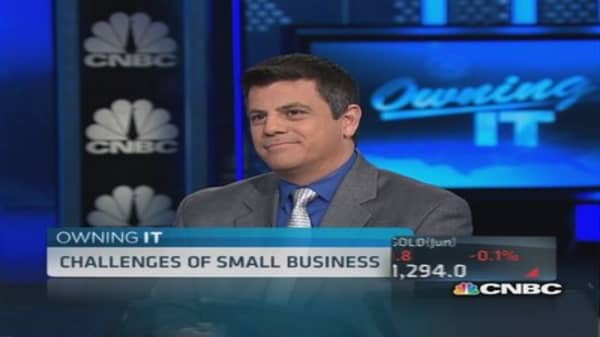Small business is no longer the "engine" of U.S. job creation.
More than six years after the Great Recession unleashed a massive wave of layoffs, the economy market is finally replacing the last of the jobs lost since employment peaked in early 2008.
But that recovery—longer and deeper than any post-war recession—has been weakened by the fading fortunes of 5.7 million U.S. small businesses with a combined payroll of more than $2 trillion a year.
In fact, the role of small business as a job creator has fallen sharply, especially among younger businesses that once created the bulk of employment, according to an analysis of the government's jobs data.
"The U.S economy is becoming less dynamic and less entrepreneurial," said economist Ian Hathaway, co-author of a recent Brookings Institution paper on the decline small business creation. "There's a consolidation process going on, and a growing share of employment is going to the older and larger firms. These older larger firms are somehow advantaged, but we don't know the cause."
Read More In liberal cities, minimum wage puts businesses in a bind
For Robert Cioffi, CEO and co-founder of Yonkers, N.Y.- based Progressive Computing, rising costs have put a damper on his hiring plans, especially the cost of providing health care to his 15-person staff. Though his IT services firm, now in its 21st year, is doing well, he hasn't expanded his payroll since last year and expects to maintain a hiring freeze at least through next year. The reason, he said, is that costs are outpacing his company's growth.
"There is a lot of pressure to do more with less," said Cioffi. "If you look at line items like fuel, cellphones, taxes and rent, they're not much on their own, but add them up, it's a lot."
Health-care costs—rising double digits every year—hit the hardest. "That's two more bodies I could hire," he said.
Data Visualization: See how Small Business hiring has faltered
The problem is compounded by the lackluster pace of hiring among the small and medium-sized business Cioffi's company serves.
"Our revenue is a function of the size of our clients," said Cioffi. "If they're not hiring—or worse yet, shrinking—then our business stagnates."





